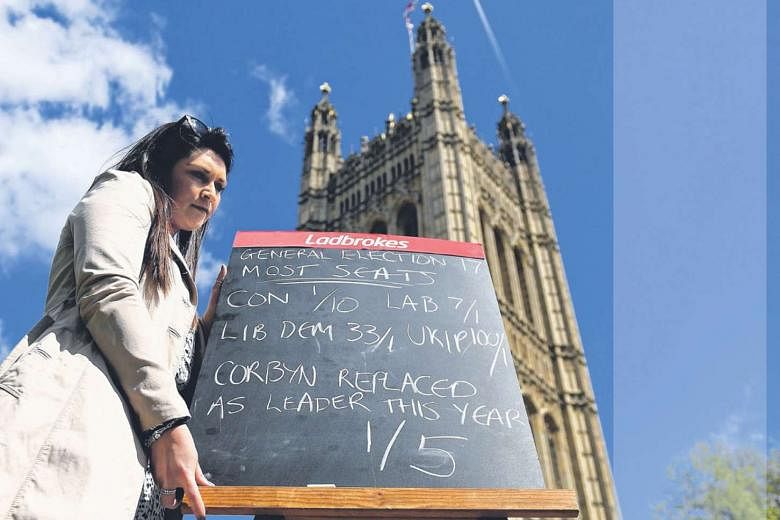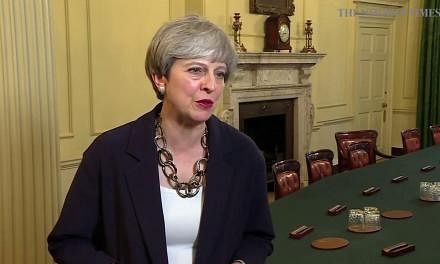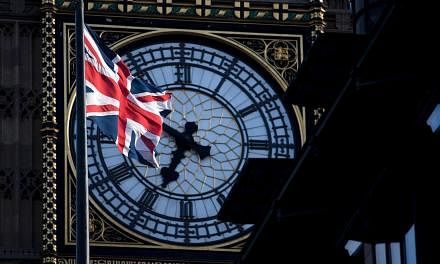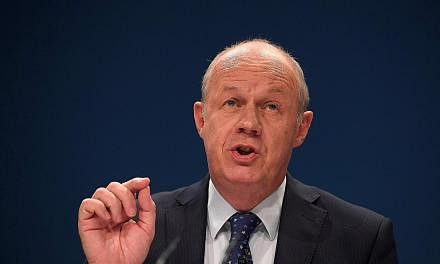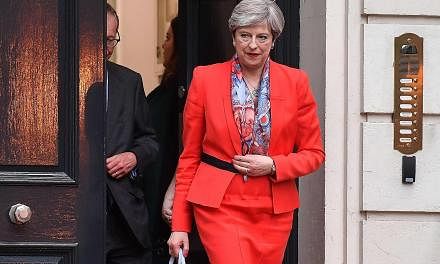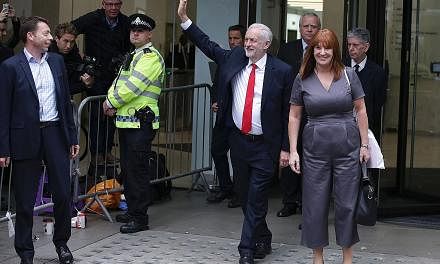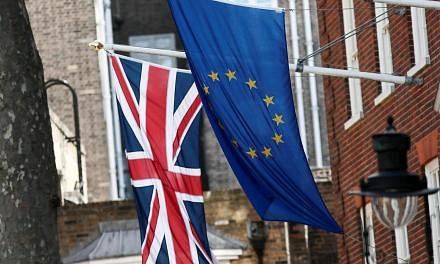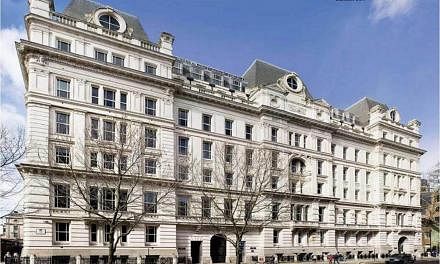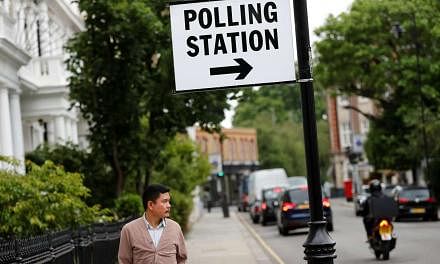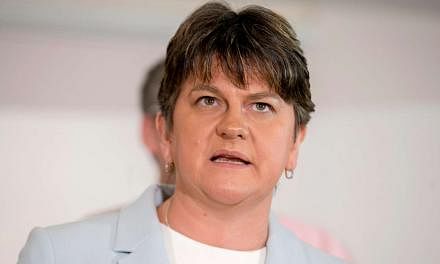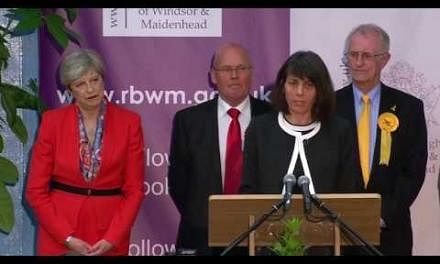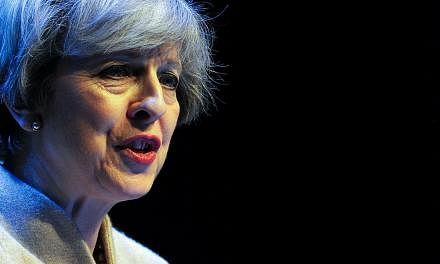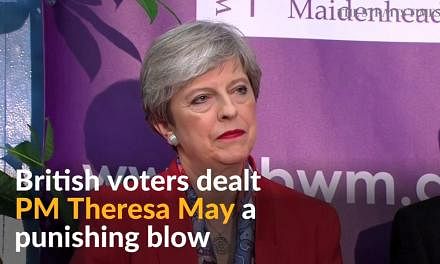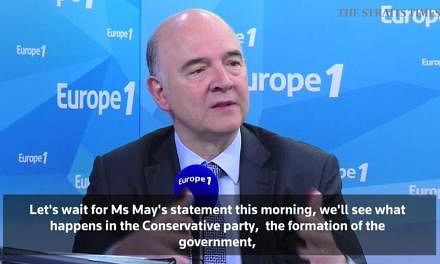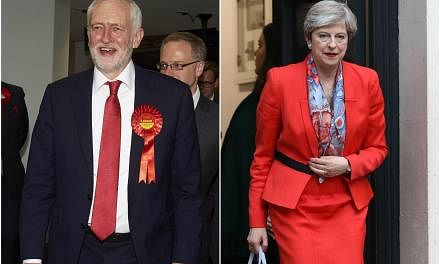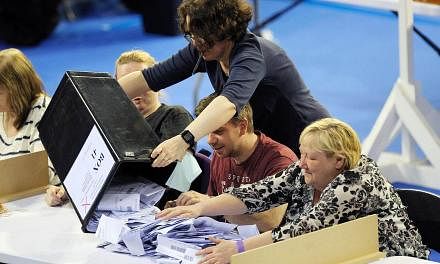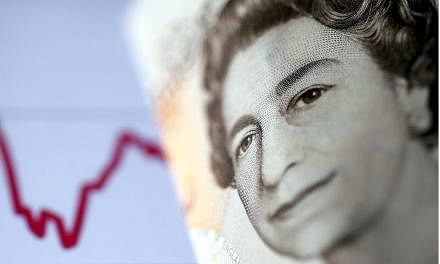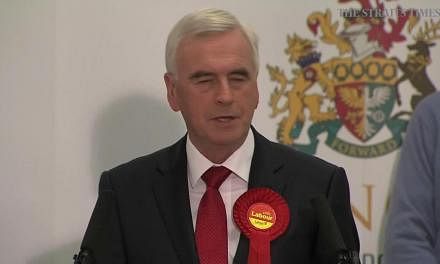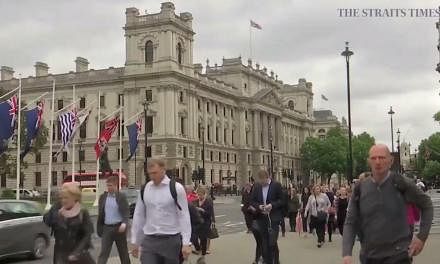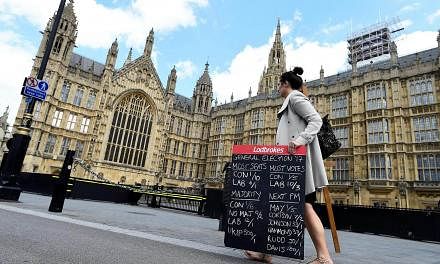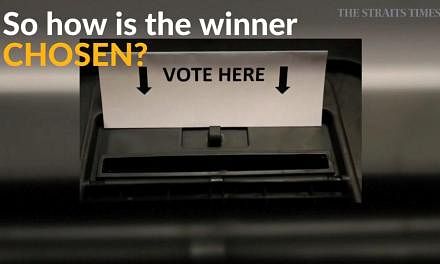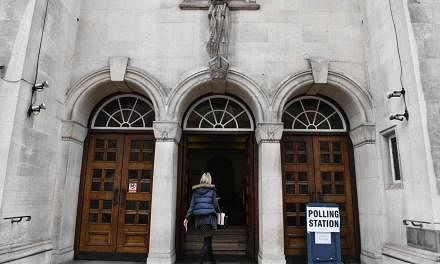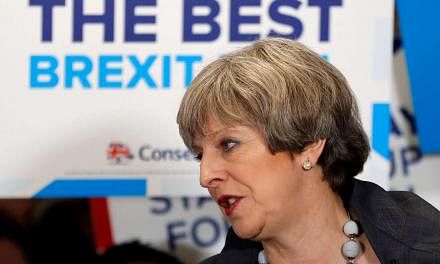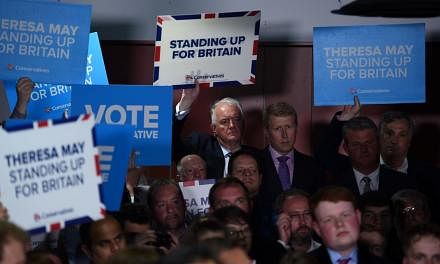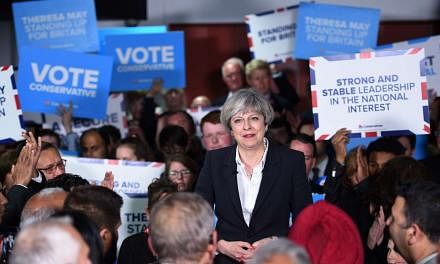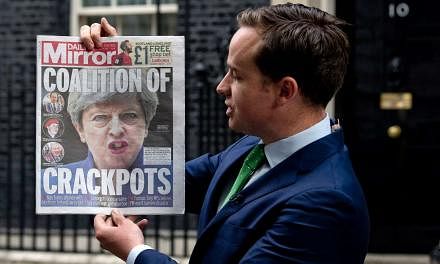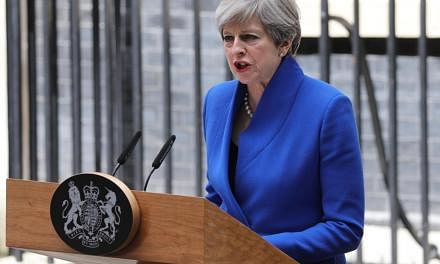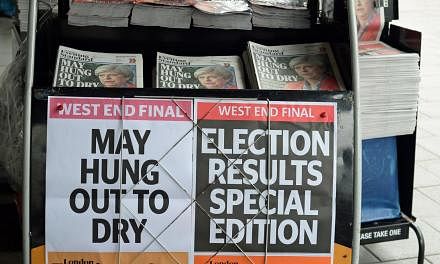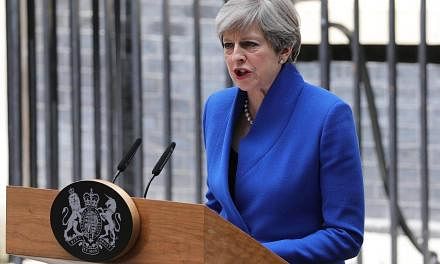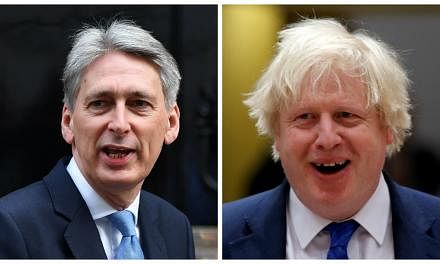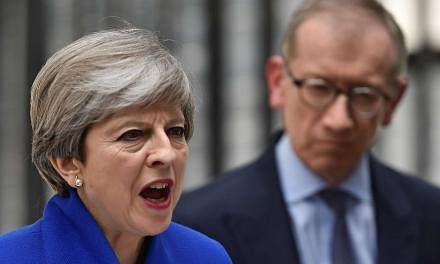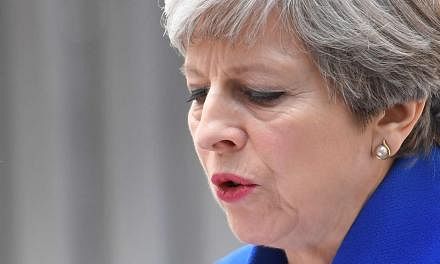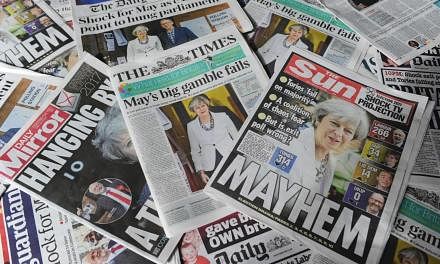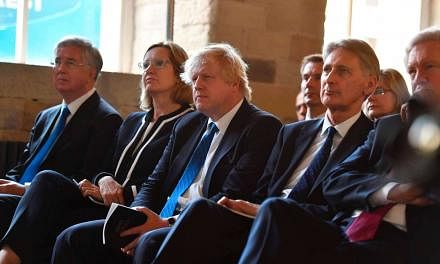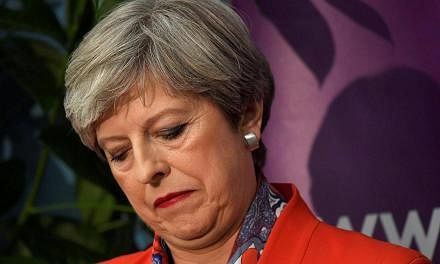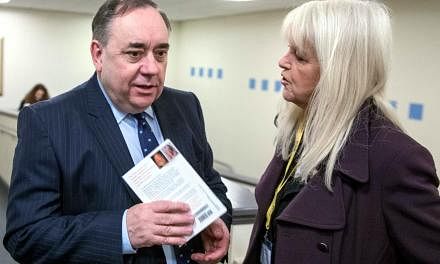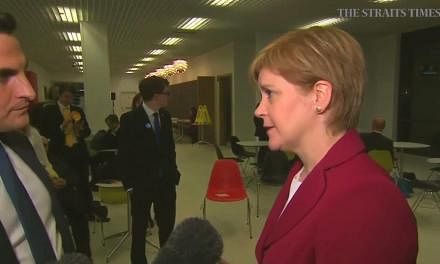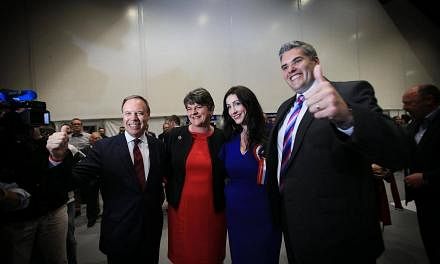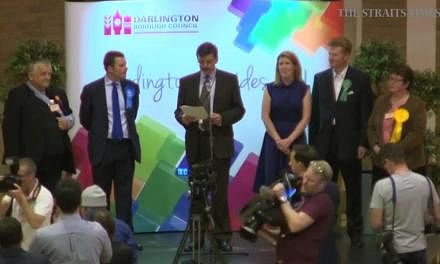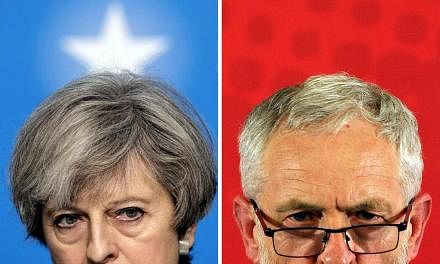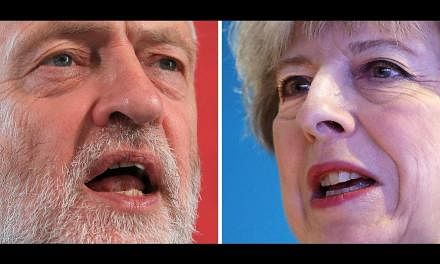LONDON • British lawmakers yesterday overwhelmingly backed Prime Minister Theresa May's call for a snap election, paving the way for a June vote that she hopes will give her a "mandate to complete Brexit".
Mrs May surprised allies and opponents on Tuesday when she announced her plan to bring forward an election that was not due until 2020, saying she needed to avoid a clash of priorities in the sensitive final stages of the two-year Brexit talks, reported Reuters.
After addressing a rowdy session of the House of Commons, Mrs May won the support of 522 lawmakers in the 650-seat Parliament for an election on June 8, an easy victory for the Prime Minister, who could see her majority increase by at least 100 seats in the poll.
"I believe that, at this moment of enormous national significance, there should be unity here in Westminster, not division," Mrs May told Parliament. "A general election will provide the country with five years of strong and stable leadership to see us through the negotiations and ensure we are able to go on to make a success as a result, and that is crucial."
In a sign of the key campaign issues ahead, Mrs May traded barbs in the Commons with opposition Labour leader Jeremy Corbyn, whose party is deeply divided and languishing up to 20 points behind the Conservatives, reported Agence France-Presse. Mr Corbyn accused the government of "broken promises" on health, education and the economy during its seven years in office. Mrs May hit back that Labour offered only "bankruptcy and chaos", but denied she was complacent, saying: "We will be out there fighting for every vote."
-
Why a vote?
-
Critics say snap elections have mainly been used by British leaders to hold early votes when it benefited their own parties.
In response to that criticism, the then ruling coalition of Conservatives and Liberal Democrats passed the Fixed-Term Parliaments Act in 2011 to prevent future snap elections from being used as a political tool.
Under that law, general elections are supposed to be held on a regular five-year schedule, with the next vote due in 2020.
Technically, there are now only two ways to call early elections. The House of Commons can pave the way for an early vote by approving it with a two-thirds majority, or it can defeat the prime minister in a vote of confidence and have that result stand for two weeks.
WASHINGTON POST
Labour's top ranks convened an emergency meeting after Mrs May's announcement on Tuesday, where Mr Corbyn told MPs he did not underestimate the task ahead, but "let's get out there".
Several Labour lawmakers told The Guardian they felt their leader was too hasty in supporting a snap election based on Mrs May's terms and in a climate of national instability because of Brexit.
In a worrying sign for Labour, three of its MPs have already announced they will not stand again.
Former British finance minister George Osborne, a Conservative who is a key opponent of Brexit, also said yesterday he was quitting Parliament, but would "go on fighting" for Britain as editor of London's Evening Standard newspaper. "I am stepping down from the House of Commons - for now," he wrote in a letter to his constituents.
For Scotland's First Minister, Ms Nicola Sturgeon, the move was a "huge political miscalculation" that could help the Scottish National Party's (SNP's) efforts to hold an independence vote, reported Reuters. "If the SNP wins this election in Scotland and the Tories (Conservatives) don't, then Theresa May's attempt to block our mandate to give the people of Scotland a choice over their own future when the time is right will crumble to dust," she said.
The president of the European Commission, Mr Jean-Claude Juncker, believes "real" Brexit talks will only start after British snap elections, an EU spokesman said yesterday. Mr Juncker had spoken to Mrs May on Tuesday after her call for early elections.
The spokesman noted that this did not mean there will be a delay in Brexit talks, "because negotiations were meant to start in June regardless of the UK government's decision to call an election on the 8th".
